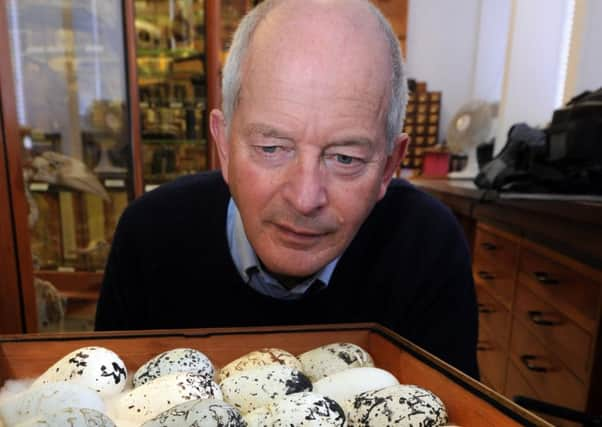Retiring Sheffield professor’s pioneering bird study to continue after donors raise £100,000


Ever since the 1970s, Tim Birkhead has been making annual trips to a remote Welsh island to chart the story of a bird population that was decimated during the Second World War and is now threatened by the effects of climate change.
But with the award-winning zoology professor retiring from his post at the University of Sheffield, he feared his study of guillemots at Skomer Island off the coast of Pembrokshire would come to an end at the same time.
Advertisement
Hide AdAdvertisement
Hide AdHowever, its future has now been secured for at least another decade after £100,000 was raised to ensure the continuation of the study. Over 330 donations were made to Professor Birkhead’s appeal for support, from donors across the globe, including gifts from former students, colleagues and collaborators.
Professor Birkhead, from the University’s Department of Animal and Plant Sciences, says: “I am absolutely delighted that this vital and unique study will be able to continue and I could not be more grateful to the hundreds of individuals who have made donations to allow it to carry on.”
He adds: “I have been working on this study for the majority of my career, monitoring the health of the guillemot population on the island of Skomer. However, the results of this study can be felt far more widely, both for conservation of other seabirds but also as a proxy for the health of the marine environment.”
Seabirds such as guillemots are particularly responsive to changes in the environment, meaning they act as a barometer for the overall health of the ocean.
Advertisement
Hide AdAdvertisement
Hide AdHaving such a long, uninterrupted study is of vital importance to environmental research as the data recorded shows how guillemots have responded to the changes in their environment.
This information can also be used to infer how guillemots and other marine environments might respond to future changes posed by global warming and other forms of climate change.
Professor Birkhead, who grew up near Leeds and joined the University of Sheffield in 1976 after first visiting Skomer in 1972 as part of his PhD project at Oxford, adds: “I am truly, truly thankful to each and every person who has made a donation to support this work.
“Knowing that this research will continue in safe hands is the best retirement gift I could have hoped for – though it’s safe to say this won’t be the last the guillemots see of me.”
Advertisement
Hide AdAdvertisement
Hide AdBirkhead’s pioneering research involved examining the survival rates of eggs and chicks, partly by marking birds with coloured rings to see which were surviving year by year. At the start of the project, the guillemot population numbered just 2,000 birds but has now recovered to around 25,000.
It is believed there were over 100,000 guillemots on the island before the Second World War but their numbers were decimated by oil pollution during the war,
While guillemots appear to be prospering on Skomer, that is not reflected elsewhere, with falling numbers in northern Scotland thought to be linked to over-fishing and climate change.
Miles Stevenson, the University of Sheffield’s Director of Advancement, says: “Professor Birkhead has been a dedicated member of the University for decades, and has impacted the lives of countless students.
Advertisement
Hide AdAdvertisement
Hide Ad“It has been a great pleasure to work with Tim for a number of years, and to help him support his work into this important environmental cause. I am delighted he has reached his target, and wish him a very happy retirement.”
To find out more about Professor Birkhead’s fundraising appeal, and to help the study continue for even longer, visit the JustGiving appeal: www.justgiving.com/fundraising/guillemotsskomer.